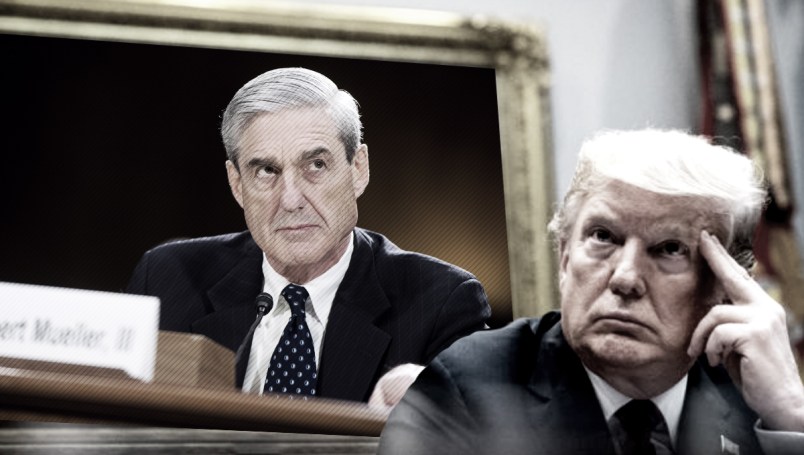This is not to call out longtime TPM Reader EB, with whom I just had a good exchange about this. But I reprint a portion of EB’s note because many other readers seem to be under the same misimpression. And it is a very important one. I’m happy to say our team got this right. But it’s eluded most other news outlets, at least inasmuch as the story gets reduced to headlines and glosses about Mueller’s judgment on obstruction of justice. To be clear, by the end of the day, a lot of the big outlets had this right. But it’s not how it played in headlines or the quick cable news summaries. From EB …
I think it’s safe to assume that from the get go Mueller had no intention of indicting Trump because of the DOJ policy. Then he comes out and says, from what I can tell without reading the full report on my own, that there wasn’t enough evidence to charge him with a crime. What’s up with that? He never saw his job as indicting and prosecuting Trump, so why come a conclusion regarding criminality?
Mueller definitely did not say this.
What he said is technical and admittedly somewhat elliptical. But the gist of what he said is this: He agreed with the longtime OLC guidance that a President should not/cannot be indicted in office. He further argued that since the President cannot be indicted in office it is unfair to accuse him of a crime. Why would it be unfair? When someone is indicted for a crime they have the opportunity to defend and vindicate themselves in a judicial process. If Mueller were to accuse the President of a crime without indicting him, the President would have no such recourse, no judicial process in which he could defend or vindicate himself.
Set aside whether you agree with that analysis. The key point is that Mueller accepted the OLC no-indictment reasoning and found a corollary to that reasoning: that he could not accuse him of a crime at all. “Fairness concerns counseled against potentially reaching that judgement when no charges can be brought.” He then said explicitly that even though he would not accuse the President of a crime he would rule out a crime if the evidence warranted it. But it didn’t warrant it. “Based on the facts and the applicable legal standards, however, we are unable to reach that judgment.”
By implication, reading the totality of the document, it’s pretty clear the Special Counsel did believe he did commit a crime. That is borne out in the discussion of the 10 instances of obstructive behavior. Implications of course are not definitive statements. Different people can draw different implications. But the document is crystal clear on this point: nowhere does Mueller say he did not find sufficient evidence to say Trump committed obstruction. He very specifically said that OLC guidance and the Special Counsel’s Office own legal analysis barred him from rendering judgment at all.
This is all pretty technical. And if you’re really curious you should read the entire second volume of the Report. But the explanation of this reasoning is contained in a very short passage, only two pages. It’s pages 1 and 2 of the second volume of the Report and pages 213 and 214 of the official PDF document.






